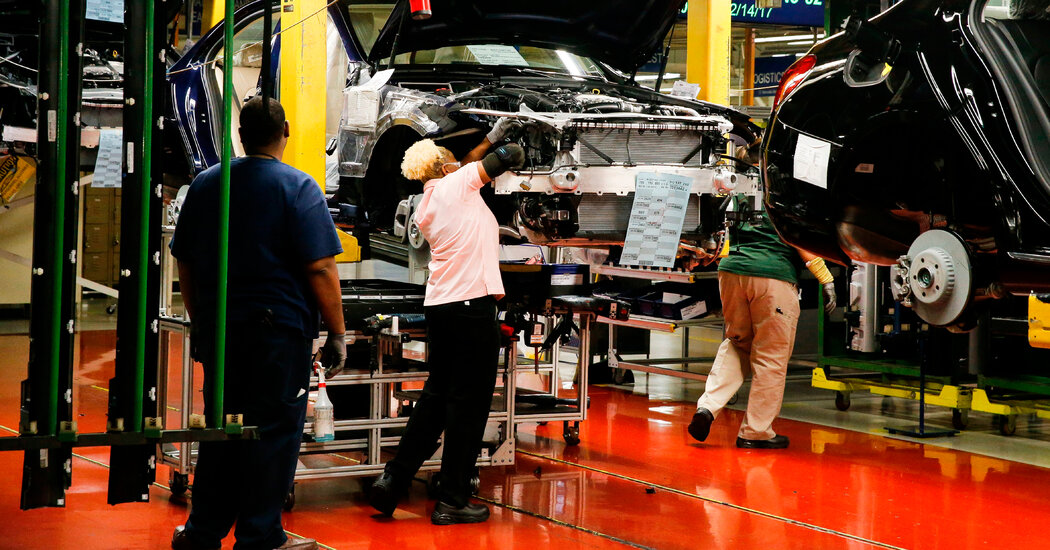
Workers at a Mercedes-Benz factory in Alabama have petitioned federal officials to hold a vote on whether to join the United Automobile Workers, the union said on Friday, a step forward for its drive to organize workers at car factories in the South.
The union is trying to build on the momentum from the contracts it won last year at Ford Motor, General Motors and Stellantis, which gave workers at the three Detroit carmakers their biggest raises in decades.
The U.A.W. is also trying to organize workers at a Volkswagen factory in Tennessee and a Hyundai factory in Alabama, establishing a bigger presence in states that have drawn much of the new investment in automobile manufacturing in recent decades. A vote at the Volkswagen plant is scheduled for April 17 to 19.
The drive has taken on added importance as Southern states like South Carolina and Georgia attract billions of dollars in investment in electric vehicle and battery manufacturing. The U.A.W. is trying to ensure that jobs created by electric vehicles do not pay less than jobs at traditional auto factories.
A large majority of workers at the Mercedes plant, near Tuscaloosa, had earlier signed cards expressing support for a vote. On Friday they formally petitioned the National Labor Relations Board to hold an election on whether to be represented by the U.A.W., the union said.
Mercedes, which makes luxury sport utility vehicles in Alabama, said in a statement that it “fully respects our team members’ choice whether to unionize” and that it would ensure that workers had “access to the information necessary to make an informed choice.”
Southern states have traditionally been difficult territory for unions, in some cases because of legislation unfavorable to organized labor or because elected officials openly campaigned against unions. The lack of a strong union presence is probably one reason the region has attracted a big share of auto industry investment.
Attempts in 2014 and 2019 to organize Volkswagen’s factory in Chattanooga, where the German company makes the Atlas sport utility vehicle and ID.4 electric S.U.V., failed in part because of opposition from Republican elected officials in Tennessee.
Toyota, Volkswagen and other carmakers raised hourly wages after the union won pay increases for Ford, G.M. and Stellantis workers. Still, the nonunion workers tend to earn less. In many cases, pay is less of an issue than work schedules, health benefits and time off.
In a video on Friday, the U.A.W. president, Shawn Fain, said workers were fighting for “work-life balance, good health care you can afford, a better life for your family.”
The union has complained to the National Labor Relations Board that Mercedes has retaliated against organizers in Alabama. The carmaker denied the accusations, saying it “has not interfered with or retaliated against any team member in their right to pursue union representation.”